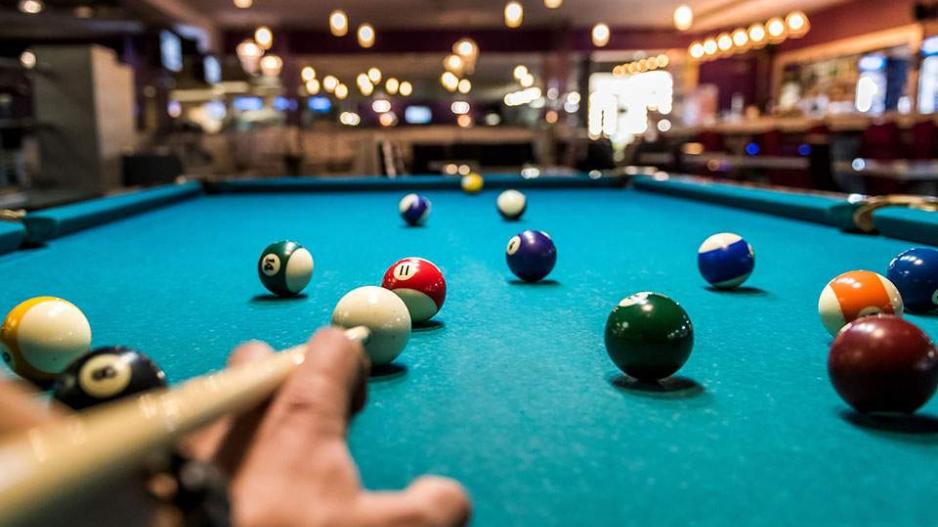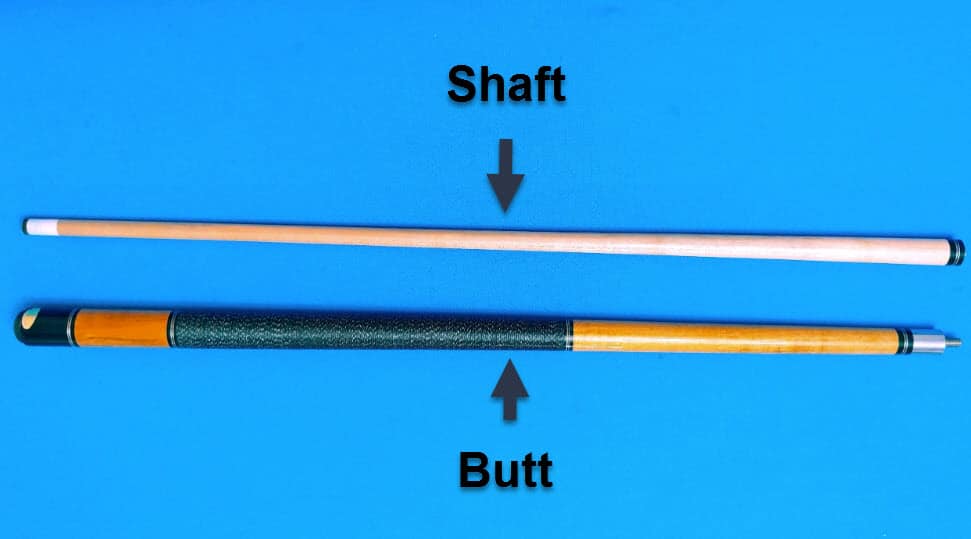Short Cue Sticks: The Hidden Gem Of Pool And Billiards
Hey there, cue sports enthusiasts! If you're diving headfirst into the world of pool and billiards, you've probably heard a thing or two about short cue sticks. These little powerhouses are game-changers for players of all shapes and sizes. Whether you're just starting out or you've been hustling for years, understanding what short cue sticks bring to the table can seriously elevate your game. So, grab a drink, sit back, and let’s chat about why these compact sticks deserve a spot in your arsenal.
Let’s be real for a second. Traditional long cues aren’t one-size-fits-all. If you're on the shorter side, dealing with physical limitations, or simply craving something more manageable, short cue sticks might just become your new best friend. These aren’t just mini versions of their longer cousins—they’re precision-engineered tools designed to give you maximum control while cutting down on the hassle. It’s like having a Swiss Army knife in the world of pool sticks.
In this guide, we’ll break it all down for you. From the benefits and drawbacks to expert tips on picking the right one, we’ve got your back. So, whether you’re planning your next pool night or aiming to take your game to the next level, let’s explore why short cue sticks are worth considering. Stick with me—it’s gonna be a fun ride!
Read also:Clarence Gilyard The Journey Of A Hollywood Icon
Table of Contents
- What Are Short Cue Sticks?
- The History of Short Cue Sticks
- Benefits of Using Short Cue Sticks
- Drawbacks to Consider
- Choosing the Right Short Cue
- Materials and Design
- Tips for Using Short Cue Sticks
- Famous Players Who Use Short Cue Sticks
- Maintenance and Care
- Conclusion: Is a Short Cue Stick Right for You?
What Are Short Cue Sticks?
Alright, let’s start with the basics. Short cue sticks are, as the name suggests, shorter versions of the standard pool and billiards cues. They usually clock in at around 42 to 46 inches, compared to the usual 57 to 58 inches of a traditional cue. These sticks are specifically designed for players who find long cues bulky or uncomfortable.
But here’s the thing—they’re not just for shorter players. Anyone looking to gain more control and precision, especially in tight spaces, can benefit from using a short cue. Plus, they’re perfect for beginners who are still getting comfortable with the game. Think of them as the perfect starter kit for anyone stepping into the world of cue sports.
The History of Short Cue Sticks
Short cue sticks have been around longer than you might think. Back in the day, pool tables were a luxury item, and only the wealthy could afford them. As the game grew in popularity, manufacturers realized they needed to cater to a wider audience. Enter the short cue stick.
In the early 20th century, shorter cues started gaining traction, especially in smaller venues where space was at a premium. Over time, advancements in technology and materials allowed manufacturers to produce high-quality short cues that could hold their own against their longer counterparts. It’s a testament to how far the game—and the tools we use to play it—has come.
Evolution of Short Cues
The evolution of short cue sticks is nothing short of remarkable. From humble wooden shafts to cutting-edge materials like carbon fiber and fiberglass, the options today are mind-blowing. No matter your playing style or preferences, there’s a short cue out there designed just for you.
Benefits of Using Short Cue Sticks
So, why should you even consider switching to a short cue stick? Here are some of the top reasons:
Read also:Lets Focus On Positive Respectful Content
- Improved Comfort: Short cues are easier to handle, especially for players with smaller hands or shorter stature. They feel more natural and reduce strain during long gaming sessions.
- Better Control: In tight spaces, short cues shine. They allow for more precise shots, giving you the confidence to take on even the trickiest angles.
- Increased Portability: Shorter cues are a dream when it comes to carrying them around or storing them. Whether you’re traveling or just keeping it in your car, they’re a breeze to manage.
- Enhanced Confidence: Players who struggle with long cues often feel more confident with a short one in hand. It’s like having a trusty sidekick that’s got your back.
Drawbacks to Consider
Of course, no tool is without its downsides. Here are a few potential drawbacks to keep in mind:
- Learning Curve: If you’re used to long cues, adjusting to a shorter length might take some time. But hey, practice makes perfect, right?
- Less Power: Some players feel that short cues don’t pack the same punch as long ones. That said, precision often trumps power in the world of pool.
- Availability: Depending on where you live, finding a high-quality short cue might be a bit of a challenge. But with the rise of online shopping, this is becoming less of an issue.
Choosing the Right Short Cue
Picking the perfect short cue stick can feel a little overwhelming, but don’t stress—it’s easier than you think. Here are a few things to keep in mind:
- Length: Make sure the cue is the right size for your height and playing style. A cue that’s too long or too short can throw off your game.
- Weight: A well-balanced cue can make all the difference. Look for one that feels comfortable in your hands and doesn’t feel too heavy or too light.
- Material: Whether you prefer the classic feel of wood or the futuristic appeal of carbon fiber, choose a material that resonates with you.
- Shaft Design: Ergonomic shafts are your friend. They reduce strain on your hands and wrists, allowing you to play longer without fatigue.
Key Features to Look For
When shopping for a short cue, keep an eye out for features like joint strength, tip quality, and overall craftsmanship. These might seem like small details, but they can have a huge impact on your playing experience. Think of it like buying a car—those little extras can make all the difference.
Materials and Design
Short cue sticks come in a variety of materials, each with its own set of pros and cons. Here’s a quick breakdown:
- Wood: If you’re looking for a classic feel, wood cues are hard to beat. They’re reliable, affordable, and perfect for beginners.
- Carbon Fiber: For players who prioritize performance, carbon fiber cues are the way to go. They’re lightweight, durable, and offer unmatched precision.
- Fiberglass: If you’re on a budget but still want solid performance, fiberglass cues are a great option. They’re sturdy and offer good value for your money.
Design-wise, look for cues with ergonomic grips and precision tips. These small details can make a big difference in your game. Think of it like upgrading your car’s steering wheel—it might seem minor, but it can totally change how you drive.
Tips for Using Short Cue Sticks
Now that you’ve got your short cue, here are a few tips to help you master it:
- Practice Your Stance: Adjust your stance to accommodate the shorter length. It might feel weird at first, but you’ll get the hang of it in no time.
- Focus on Accuracy: Short cues excel in precision, so spend some time honing your aim. It’s like sharpening a blade—every little bit counts.
- Experiment with Shots: Try different types of shots to see what works best for you. You might be surprised at how versatile these sticks can be.
Famous Players Who Use Short Cue Sticks
Believe it or not, some of the biggest names in pool and billiards swear by short cues. Take a look at a few:
- Jeanette Lee: Known as the "Black Widow," Lee often uses a short cue for added control. She’s proof that sometimes less is more.
- Shane Van Boening: One of the top players in the world, Van Boening has been spotted using short cues in tournaments. If it’s good enough for him, it’s definitely worth considering.
Why Do They Choose Short Cues?
These pros choose short cues for their precision and versatility. They understand that sometimes, a shorter stick can give you the edge you need to win. It’s like having a secret weapon in your back pocket.
Maintenance and Care
Proper maintenance is key to keeping your short cue stick in top condition. Here’s how to take care of it:
- Regular Cleaning: Wipe down your cue after every use to prevent buildup. Think of it like brushing your teeth—regular cleaning keeps it in great shape.
- Tip Maintenance: Check your tip regularly and replace it as needed. A worn-out tip can ruin your game faster than you think.
- Storage: Keep your cue in a safe, dry place to prevent damage. A good case goes a long way in protecting your investment.
Conclusion: Is a Short Cue Stick Right for You?
There you have it—everything you need to know about short cue sticks. Whether you’re a seasoned player or just starting out, these compact cues can be a game-changer. They offer improved comfort, better control, and increased portability, making them a great choice for many players.
But here’s the deal—the key is finding the right one for you. Take your time, do your research, and don’t be afraid to try out different options. And hey, if you’re still on the fence, drop a comment below and let us know what’s holding you back. Who knows? Maybe we can help you make the decision.
Until next time, keep hustling, keep practicing, and most importantly, keep enjoying the game. See you on the felt!
Article Recommendations


